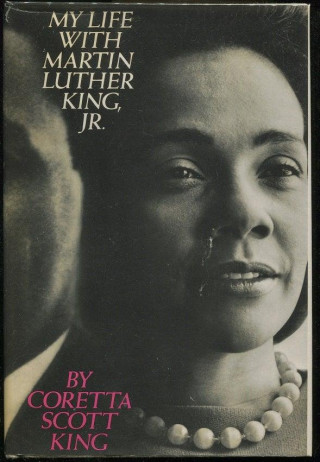“I am made to sound like an attachment to a vacuum cleaner,” Scott King had observed about the ways she was often represented in public discourse: “the wife of Martin, then the widow of Martin, all of which I was proud to be.” This had even been true in her own “autobiography.” “I didn’t learn my commitment from Martin, we just converged at a certain time.” Although a number of biographers since then have taken note of her politics before she met Martin, she largely disappears as a political actor throughout his life and leadership, until she moves to carry on his legacy after the assassination.
Scott King saw the deficit partly as a result of who was doing the telling. At one of the first conferences of King scholars, in 1986, she said to those gathered, “The next time we have a conference on him, I want to see more women scholars. He allowed me to be myself, and that meant that I always expressed my views.”
Theirs was a political and intellectual partnership from the beginning. King married a feminist intellectual freedom fighter with unflinching determination, and he could not have been the leader he was without her. Scott King’s activism—her understanding of the evils of racism, poverty, and militarism—started before her marriage, complemented and influenced her husband’s work, and extended well beyond his assassination, in 1968. She was the family leader on issues of peace, war, and the economy. Although their relationship hewed to certain gender conventions of the time, particularly because of King’s belief that she be the one to stay home and raise the children, it challenged other dominant social mores. Both refused to “stay in their lane” despite immense pressure; they prioritized a life of struggle over a safe or materially secure family life, she spoke her mind both privately and publicly, and he relied on her thoughts and on her unwavering commitment to keep going.
Coretta was more politically active than Martin when they met. She had grown up in a proud farming family in Alabama who owned their own land. The family was harassed and threatened repeatedly. When her father started transporting lumber, a business reserved for white people, whites torched their house to the ground. And when her father refused to sell his business to a white man, whites burned the business too. Those experiences and the pride that her parents instilled in her helped prepare Coretta for what she would encounter as an adult. Growing up, “I was tough,” and liked to fight, she told Mayerson in 1968—something that didn’t make it into the book.
